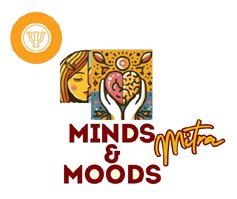Decoding the Mind’s Potential: Cognitive and Intellectual Assessment 🧠
A cognitive/intellectual assessment is a powerful tool used by a psychologist or psychotherapist to measure a person’s mental abilities. This isn’t just about a single number like an IQ test; it’s a comprehensive evaluation that provides a detailed profile of an individual’s cognitive strengths and weaknesses. By assessing a range of skills, from memory and problem-solving to verbal comprehension and processing speed, these tests help identify the root causes of learning difficulties, behavioral issues, or academic struggles.
A Trusted Professional in Nagpur: Rrimi Bodalkar
For those in Nagpur seeking a highly qualified professional, Rrimi Bodalkar, a Sr. Psychotherapist / Mental Health Counsellor, offers comprehensive services in the field of cognitive and intellectual assessment. Holding an M.A. in Psychology (Counselling) and a PGDMH (Clinical), she has a strong foundation in both clinical and therapeutic practices. As an NSDC Certified professional in Psychometric Analysis & Learning Style Assessment, she is skilled in administering and interpreting a wide range of assessments, including IQ testing. Her specialization in CBT, REBT & DBT allows her to integrate assessment findings with effective therapeutic interventions, whether the client needs help with negative thinking, confidence building, or trauma therapy. Her practice is a trusted counselling center for individuals and families seeking holistic support.
When to Consider an Assessment: Symptoms & Causes
Cognitive assessments are valuable for all age groups, from children facing learning challenges to adults concerned about cognitive decline. The symptoms that may indicate a need for an assessment include:
- Academic Struggles: A child who is underperforming in school, despite putting in effort, may benefit from an academic stress psychologist to determine if there are underlying cognitive deficits.
- Memory Issues: Persistent forgetfulness, difficulty with recall, or getting lost in familiar places.
- Behavioral & Social Challenges: Trouble with social skills training, anger management, or difficulty with impulse control, which may be linked to specific cognitive weaknesses.
- Developmental Delays: For children, an assessment can help identify and provide support for special needs children, including those with ADHD or those requiring an Autism spectrum evaluation.
The causes for these issues can be varied, including neurological factors, genetic predispositions, or even past trauma or an underlying mood disorder. An intellectual assessment can help differentiate between an emotional issue like depression and a genuine cognitive challenge.
The Procedure of Treatment: A Comprehensive Evaluation
The procedure of treatment for a cognitive/intellectual assessment is a structured process designed to provide a complete picture of an individual’s cognitive profile.
- Initial Consultation: The psychologist meets with the individual (and their family, in the case of a child) to understand their history, specific concerns, and goals for the assessment.
- Test Administration: The individual will be administered a series of standardized tests, often lasting several hours. These tests measure various cognitive domains, including:
- Verbal Comprehension: The ability to understand and use language.
- Perceptual Reasoning: The ability to solve visual problems and understand spatial relationships.
- Working Memory: The ability to hold and manipulate information in the short term.
- Processing Speed: How quickly a person can process information and perform tasks.
- Analysis & Reporting: The psychologist scores and interprets the results, providing a detailed report of the individual’s cognitive strengths and weaknesses. This report is then used to inform recommendations for therapy, educational support, or career paths.
- Feedback Session: The final step is a feedback session where the psychotherapist explains the findings in clear, understandable terms. This is a crucial part of the process, as it helps the client and their family understand the results and make informed decisions about future steps, whether it’s career counselling, life transition counselling, or other forms of personal counselling.
Frequently Asked Questions (FAQ’s)
Q1: Is an IQ test the same as a cognitive assessment?
A: An IQ test is one part of a comprehensive cognitive or intellectual assessment. While it provides a single score of general intellectual ability, a full assessment goes much deeper, providing a profile of a person’s specific cognitive strengths and weaknesses across multiple domains.
Q2: Who can benefit from a cognitive assessment?
A: Anyone can benefit from it, but it is particularly useful for children struggling in school, individuals seeking a clear career counselling path, or older adults concerned about cognitive decline. It can also be a key step in a Neuropsychological testing process.
Q3: Can a cognitive assessment help with mental health issues?
A: Yes. An assessment can help rule out cognitive deficits as a cause of issues like anxiety or depression, allowing a psychotherapist to focus on the appropriate mood disorder interventions. It can also identify cognitive strengths that can be leveraged in therapy.
Q4: Can an intellectual assessment be used for career planning?
A: Absolutely. By identifying cognitive strengths, an assessment can help a career counselling psychologist guide an individual toward a profession where they are likely to succeed and feel fulfilled. This is a core part of psychometric counselling.
Q5: What’s the difference between a psychologist and a mental health counsellor who does assessments?
A: A psychologist is specifically trained to administer and interpret standardized psychological assessments, including IQ testing. A mental health counsellor may use some screening tools, but a full intellectual assessment is typically conducted by a psychologist.

